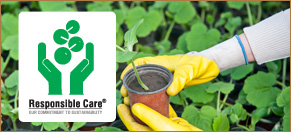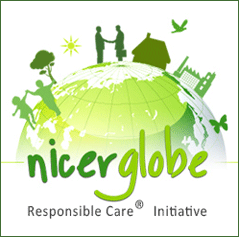



- DR. STAN HIGGINS
The Chemical Industry continues to struggle to attract young people and yet the creative industries, where often pay is poorer and opportunities for career progression fewer, children are more excited by the prospects in those industries. The fact of the matter is that our children like to be creative and love the subjects at school involving art, drama and literature and perhaps this is where we are failing in the way that we teach chemistry.
Leo Tolstoy (1828-1910) best known for his literary works, also wrote various essays on art, history, and religion. In 1896 in his essay about "What is Art?" he discussed the many nuances associated with the way in which we as humans identify and define art. Pertinently he said "In order correctly to define art, it is necessary, first of all, to cease to consider it as a means to pleasure and to consider it as one of the conditions of human life. Viewing it in this way we cannot fail to observe that art is one of the means of intercourse between man and man." Reading this again has made me reflect on where the boundaries of art and science merge and why many young people, in particular school children, perceive art subjects as interesting and exciting and sciences subjects as boring. As a chemist the main thing I have learned is that my subject is one through which the world can be appreciated and understood. The science of chemistry is really only a means through which the natural world can be such discussed, knowledge exchanged and feelings about the world around us transmitted between humans. It allows intercourse to occur, therefore is chemistry a science that is also an art?
Art is defined in one dictionary as "the expression or application of human creative skill and imagination, typically in a visual form such as painting or sculpture, producing works to be appreciated primarily for their beauty or emotional power". In the same tome chemistry is defined in two ways. Firstly as "the branch of science concerned with the substances of which matter is composed, the investigation of their properties and reactions, and the use of such reactions to form new substances". Interestingly though this dictionary further elaborates to say it is "the complex emotional or psychological interaction between people." In other words chemistry is a means of transposing physical and intellectual ideas about nature into understandable implications for humans, a mechanism through which we can describe the reality of what we perceive.
Chemistry above all is a science which is a systematic response to the disorder that we see in the natural world. This is the science that organizes knowledge in the form of testable explanations and enables predictions to be made about the universe with which we humans interact. Practicing chemists know that chemistry is still a hugely important science today which in itself suggests that there is still much to learn about the way humans interact with their environment. There is still much about our interactions with ourselves and our universe that continues to be unknown or is only fleetingly understood. We are still in search of knowledge which again referring to my dictionary is said to be a familiarity, awareness or understanding of someone or something; facts, information, descriptions, or skills, which we gain through experience and or education but which can be extended through perceiving, questioning and discovering.
Chemistry remains an important science but many in our society fail to understand that there is a huge amount of knowledge about which we cannot have intercourse. There are still things that cannot be rationally explained and reliably applied. Surely this is what should excite today's and future generations about chemistry. However the reality is for many young people chemistry has become a drudge. We teach them the current chemical language, systematic labelling of materials, laws and principles as though these are fixed in tablets of stone. From a schoolchild's perspective this must feel like a subject to which they cannot contribute, a book of unbreakable rules which can be learned through rote and inculcation with no room for their creative and inquisitive minds.
Even in the words of the world's open encyclopaedia, Wikipedia, which by the way is used by many young people to analyse their future interests and prospects, it states that "In modern usage, science most often refers to a way of pursuing knowledge, not only the knowledge itself. It is also often restricted to those branches of study that seek to explain the phenomena of the material universe. Science is the intellectual and practical activity encompassing the systematic study of the structure and behaviour of the physical and natural world through observation and experiment." There is no room for doubt here! This highly intellectual activity is systematic, restricted and structured. No room for the instinctive and creative? No room for the beauty and excitement of science?
Despite all the rules and the systems is it really scientific rigour that has brought about our major technological advances? Is this really how great inventions and discoveries are made? Is it only through the application of scientific rules and principles? Some of the most radical step changes in scientific thinking have not come this way at all, they have arisen from those that have dared to question them. From phlogiston to oxygen, Newtonian physics to Einstein, the number of planets to the smallest of particles, even the certainty of Heisenberg's uncertainty principle is currently being reassessed. Our understanding overturned by those who are prepared to think outside of the box, the instinctive and the creative, those that have noticed a flaw in the current picture of the world they lived in.
Modern systemisation of chemistry into a science started with scientists such as Bacon, Boyle, Hooke and others who in the 17th century began to take traditions from alchemy and developed them into a scientific discipline. Boyle is regarded as the founding father of chemistry due to his classic text "The Sceptical Chymist". Many chemists since that time, through the methodology of publication and peer review, have systematically added to this accumulation of knowledge. However looking back how many times that our understanding of the universe has radically changed. What were once laws and principles to be eulogised and applied turned upside down by those that have seen something new in an old experiment or developed an alternative solution from new experimental techniques and thought processes
I think it was Einstein that suggested that we will learn more about our universe not through simple observation or monitoring of experimental results but by the questions we ask of it. What this implies is that creative and inquisitive thinking has a more important role to play but this is not what we teach our children about chemistry.
We need to encourage our school children to be even more creative about the questions they ask. To let them know that chemistry is exciting because we do not know all the answers and that rules that we have are really there to be tested and broken time and time again. Ultimately science is about invention and we need to teach that chemistry is about finding inventions. The following definition of Invention might help; it says invention is "the discovery or creation of a new material (either a new manufactured product or a new composition or matter), a new process, a new use for an existing material, or any improvements of any of these". But most importantly it ends "Inventions are easy to define but can be difficult to recognize". This would be a new and exciting challenge for our young people going forward but I am not sure that conventional teaching of science and chemistry in particular equips them for this. Experimental observation and fitting the results to existing laws and principles is not enough to advance a science, more expansive and creative thinking processes are needed.
Our children need to know that in the understanding of chemistry it is still a book with many blank pages on which they can be creative and redraw our understanding of our universe. They must be taught that being a scientist is really about the questioning our environment not about preconceived rules. In other words it's about the intercourse we have with our world not just how we observe it like a piece of art.
DR. STAN HIGGINS is CEO of the Northeast of England Process Industry Cluster (NEPIC), a leading European Cluster for the chemical process industries see www.nepic.co.uk. NEPIC and ICC work closely on business development projects. Any opinions expressed in this column are those of Dr. Higgins alone

